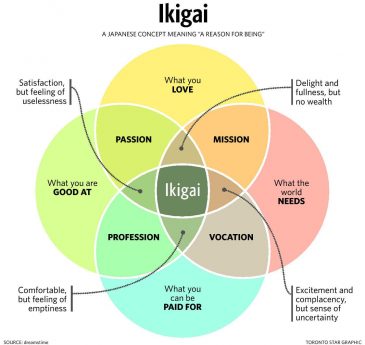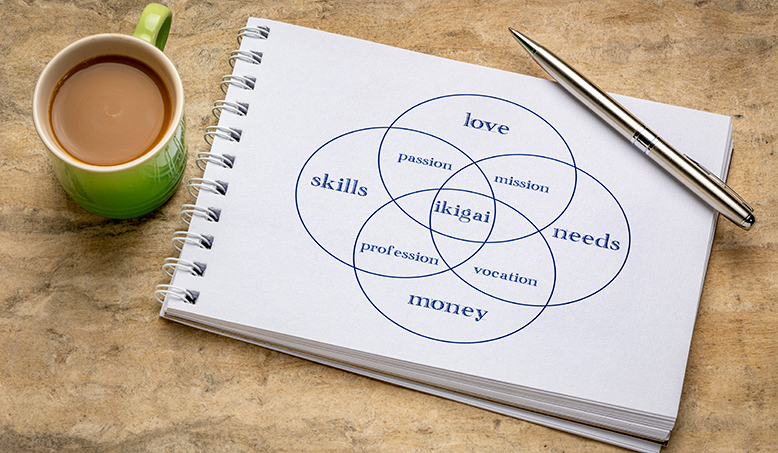Ikigai. It sounds unpleasant, nasty, distasteful. It sounds icky. Far from it! Ikigai is a Japanese concept which translates to “a reason for being”. Knowing your ikigai is empowering; it allows you to find your path to fulfilment and gives guidance in times of aimlessness.
What is it?
Ikigai is found at the intersection of what you love, what you are good at, what the world needs, and what you can be paid for. These overlapping circles lead to your passion, profession, mission, and vocation. If your life is lacking in one area, you are missing out on your potential and the opportunity to lead a happier life.


How can it help me?
You probably know this feeling. You are overwhelmed with choices and opportunities. There are a million things you could be doing with your life. I feel like this right now. Graduation is just around the corner and this has forced me to tackle my ikigai once more.
Discovering my ikigai and continuously working on it helps me to stay grounded. I first became interested in the concept in high school, when I was trying to figure out what my life should look like. Reflecting on myself and my values helped me determine what I should study, where I should go to school, and what a chosen career path might hold for me. Understanding myself better and being honest to myself about my wants and needs ultimately helped me to find value in my life. I do not want to have a purposeless life, a life without meaning. I want to take responsibility for this journey and live life to the fullest.
How can I find my ikigai?
- What do I love doing? What are my hobbies? What am I doing in my free time?
- What am I good at? Where do my strengths lie? What are my hidden talents?
- What does the world need? What would be the one thing that I would like to change? What can I do to make this world a better place?
- What can I get paid for? What jobs or positions spark my interest?
Your ikigai is a living and evolving thing. It changes over time and that is okay – it’s actually good. As we change, our ikigai changes as well. What once felt right might not feel right two years down the road. What helped me to refine and adapt my ikigai was speaking to family members and friends. I also took several personality tests, which were great tools to help me reflect upon myself, my behavior, and my development.
As we change, our ikigai changes as well. What once felt right might not feel right two years down the road.
A work in progress


